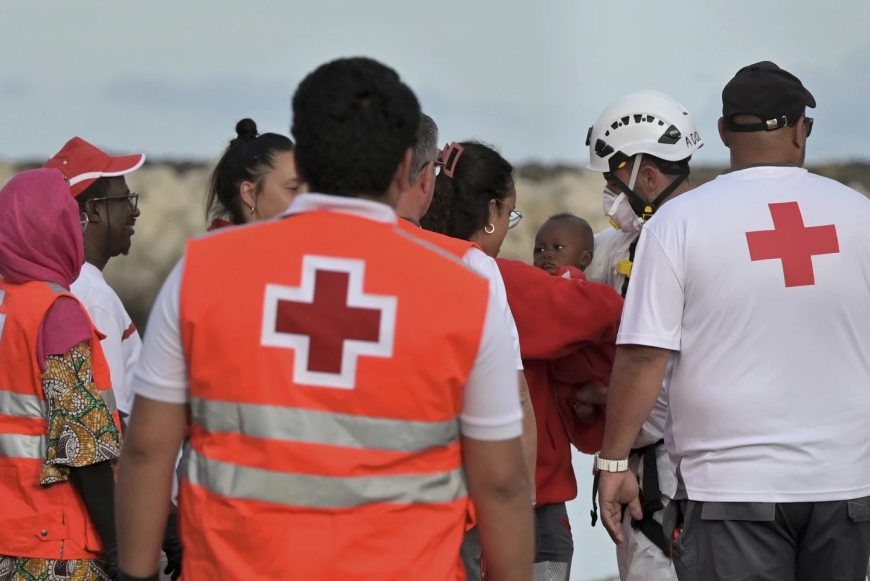Canary Islands Grapple with Surge of Unaccompanied Migrant Children; Spain's Political Landscape Divided

The Canary Islands are facing a dire humanitarian crisis as thousands of unaccompanied migrant children arrive from West Africa, prompting urgent calls for Spain’s assistance. Local officials and health workers are struggling to address the overwhelming number of minors arriving alone, many of whom are traumatized by harrowing journeys across the Atlantic.
Health workers on the islands, including Dr. Inmaculada Mora Peces, an emergency physician on El Hierro, are confronted daily with the psychological and physical toll these young migrants endure. Dr. Mora Peces describes a particularly heartbreaking case involving a young Senegalese boy who fainted repeatedly upon arrival. It was later revealed that the boy had witnessed the deaths of his parents during the perilous sea voyage; their bodies were reportedly discarded into the ocean.
“There’s no medicine for that,” Dr. Mora Peces lamented, highlighting the severe emotional and psychological distress faced by many of these children.
Legislative Proposal and Political Divisions
Spain's parliament is set to vote on a legislative proposal this Tuesday that aims to alleviate the burden on the Canary Islands by redistributing the responsibility for these minors to other regions of Spain. The bill seeks to address the crisis by mandating that other regions share the responsibility for accommodating and caring for the children.
The proposal has ignited a political debate in Spain, reflecting deep divisions within the country's political landscape. The conservative Popular Party, a key opposition force, is caught between conflicting pressures. While the party's junior role in the Canary Islands government, alongside its senior partner, the Canary Coalition party, supports the proposal, the far-right Vox party is vehemently opposed. Vox's opposition to the relocation of unaccompanied minors and its broader stance against irregular migration have led to threats of withdrawing from coalition governments in other regions if the Popular Party endorses the bill.
Overwhelmed Capacity
Under Spanish law, regional authorities are responsible for the care and guardianship of minors arriving within their jurisdictions. However, the Canary Islands government reports being overwhelmed by the influx. With over 5,500 unaccompanied minors arriving, the islands’ capacity to provide adequate care—limited to around 2,000—has been severely exceeded.
Local officials and humanitarian organizations are urging the Spanish government to take immediate action to address the crisis. The strain on local resources and the urgent need for comprehensive support have become critical issues as Spain navigates the political and humanitarian challenges posed by the surge in migrant children.
Broader Context
The Canary Islands' crisis is part of a larger migration pattern affecting Europe, where increasingly strict asylum policies and poor treatment of migrants have driven many to undertake perilous journeys in search of safety and stability. As Spain faces this acute crisis, the international community watches closely, hoping for effective solutions to ensure the safety and well-being of vulnerable migrant children.













































